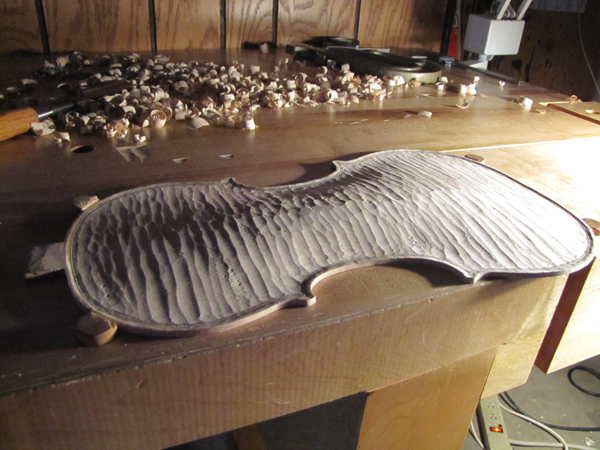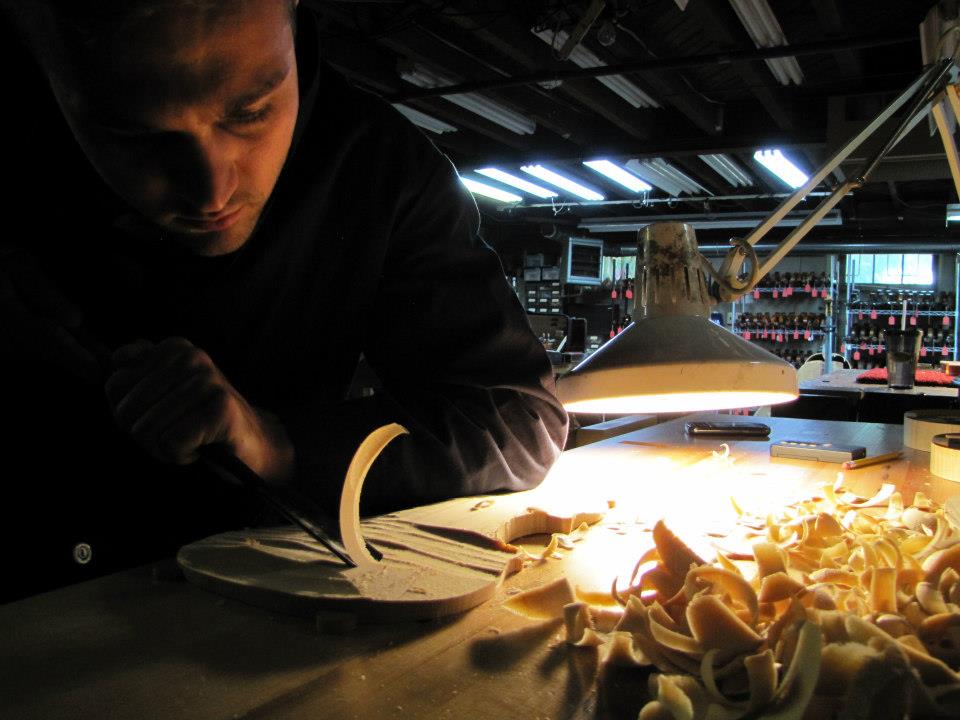Violin Maker in Philadelphia
Violin making is a very traditional art/craft. Construction of the first modern violin is often credited to Andreas Amati, the patriarch of the famous Amati family of luthiers, or stringed instrument makers, who were active in Cremona, Italy until the 18th century. Fegley’s Joseph P. McDevitt, a violin maker in the Philadelphia area, has the knowledge of these old masters at his fingertips and can help you select a violin with playing qualities that perfectly suit your tastes.
As you can imagine, learning to become a luthier is best done as an apprentice to someone who is a master of the craft. Joe was traditionally trained at the elite North Bennet Street School in Boston, and worked closely with both Marco Coppiardi, a master violin maker from Cremona, Italy, and Hans J. Nebel, a world-renowned violin restorer. Joe’s commitment to quality is firmly rooted in his many hours behind the workbench and the music stand.

At Fegley Instruments & Bows in Reading, PA, we specialize in hand-crafting and restoring violins, violas, cellos and guitars, as well as in violin setup and sound post adjustment. Whether you are a budding string musician or a concert violinist, we can assist you with an instrument that has the playability, projection, response and quality of sound that will help you create beautiful music.
No two violins are alike, and each instrument has unique acoustical characteristics. Even those that are mass-produced sound different from one another because of the nature of wood.

Here are some things to look for when buying a high-quality violin, whether you are a beginner or a pro:
- Craftsmanship.
A handmade violin takes much longer to make. The wood will have been carefully selected from older, well-seasoned stock, and it will be hand-carved. The luthier adjusts and tunes the instrument during its construction to meet acoustic standards. Look for violins made from spruce, maple, ebony, willow, boxwood, and rosewood. - Size.
In general, adults use full-size, or 4/4, violins. If you need a smaller instrument, such as 3/4, 1/2, 1/4, etc, the measurement of your neck to the palm of your extended left hand will help determine the proper size. Smaller sized violins will rarely sound as good as full sized violins, but are adequate for students. - Comfort.
Are the string heights correct? Is the bridge set up correctly? Can you bow each string without catching another string? Practice different techniques, styles, and pieces on the instrument to be sure it responds the way you expect. - Sound.
The open strings should sound full, resonant, and pleasing to your ear. Have someone else play the instrument while you listen. A violin sounds different when it’s a few inches from your ear and when you’re a few feet away. Also, the sound can vary based on the bow you’re using. Test out the violin with your own bow. - Condition.
If you decide to buy a secondhand violin, examine it for cracks. Make sure there are no gaps where the neck joins the body, an indication that the neck has moved. Examine the varnish to be sure it’s not badly worn or missing.
If you are searching for a violin maker in Philadelphia who is passionate about his craft, we welcome you to Fegley Instruments & Bows where you can compare multiple handmade violins and find one that will suit your needs for a lifetime.

